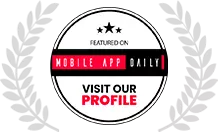In an era where digital communication has become integral to customer service, businesses must adapt to the preferences of their audience. WhatsApp, with over 2 billion active users globally, has emerged as a powerful tool for engaging with customers. This article delves into the best practices for utilizing WhatsApp effectively to enhance customer engagement, ensuring that your business can meet the expectations of today’s consumers.
WhatsApp is not just a messaging app; it’s a vital tool for businesses aiming to foster meaningful connections with their customers. By leveraging its features thoughtfully, companies can enhance their customer service, build trust, and drive sales.
1. Understanding WhatsApp Business Account
To get started with WhatsApp for customer engagement, it’s essential to understand the distinction between the standard WhatsApp application and the WhatsApp Business account.
1.1. WhatsApp vs. WhatsApp Business
- WhatsApp: Primarily designed for personal communication, this app is used for messaging friends and family.
- WhatsApp Business: This version is tailored for businesses. It offers additional features that help in managing customer interactions effectively. Businesses can create a profile with essential information, such as a business description, contact details, and website links.
1.2. Setting Up Your WhatsApp Business Account
- Download the App: Start by downloading the WhatsApp Business app from your device’s app store.
- Register Your Business Number: Use a dedicated phone number for your business to ensure clear communication with customers.
- Create a Business Profile: Fill in your business name, description, address, hours of operation, and website.
- Set Up Quick Replies: Use this feature to save frequently asked questions and responses to save time.
2. Building a Strong Profile
Your WhatsApp Business profile is the first impression customers have of your business. A well-crafted profile can enhance trust and encourage customer interaction.
2.1. Profile Picture and Business Name
- Profile Picture: Use a clear and recognizable logo or image that represents your brand. This builds brand recognition and trust.
- Business Name: Ensure that your business name is clearly stated and matches your branding across other platforms.
2.2. Business Description and Contact Information
- Description: Write a concise description that clearly communicates what your business does, the services offered, and any unique selling points.
- Contact Information: Provide multiple ways for customers to reach you, including phone numbers, email, and website links.
3. Engaging with Customers Responsively
Prompt communication is crucial in maintaining customer engagement. WhatsApp’s real-time messaging capabilities can significantly enhance your responsiveness.
3.1. Timely Responses
- Set Response Expectations: Inform customers about your typical response times. A quick reply can elevate customer satisfaction and loyalty.
- Utilize Automation: Use automated messages for greetings, FAQs, and out-of-office replies to ensure customers receive timely communication, even outside of business hours.
3.2. Personalizing Conversations
- Use Customer Names: Addressing customers by their names can create a more personal connection and enhance the overall experience.
- Tailor Responses: Whenever possible, tailor your responses to individual customer inquiries. A personalized message can make customers feel valued.
4. Leveraging WhatsApp Features for Engagement
WhatsApp provides various features that businesses can utilize to enhance customer engagement. Understanding and leveraging these features can help you communicate effectively.
4.1. Broadcast Lists vs. Groups
- Broadcast Lists: Ideal for sending messages to multiple customers without them seeing each other. Use this feature for announcements, promotions, and updates.
- Groups: Useful for community engagement or support, but ensure that customers want to be added to avoid spamming.
4.2. Media Sharing
- Images and Videos: Share high-quality images, videos, or infographics related to your products or services to capture attention.
- Documents: Send brochures, catalogs, or PDFs to provide customers with more information.
5. Utilizing WhatsApp for Customer Support
WhatsApp is a powerful tool for providing customer support. Using it effectively can lead to improved customer satisfaction and loyalty.
5.1. Offering Real-Time Support
- Live Chat: Use WhatsApp as a live chat tool to assist customers with inquiries or issues in real time.
- Troubleshooting Assistance: Provide step-by-step troubleshooting via chat to guide customers through resolving their issues.
5.2. Collecting Feedback
- Surveys: Use WhatsApp to send short surveys or polls to gather feedback about your products or services. This information can guide future improvements.
- Follow-Up Messages: After a purchase or support interaction, send a follow-up message asking for feedback on their experience.
6. Marketing and Promotions Through WhatsApp
WhatsApp can also serve as an effective marketing tool when used properly. Implementing strategies for promotions can boost engagement and sales.
6.1. Exclusive Offers
- Create Limited-Time Promotions: Use WhatsApp to send exclusive offers or discounts to your customers, creating a sense of urgency.
- VIP Customer Programs: Consider developing a loyalty program where customers receive special deals through WhatsApp.
6.2. Event Notifications
- Inform About Events: Use WhatsApp to notify customers about upcoming events, webinars, or product launches.
- Registration Reminders: Send reminders for events to keep customers engaged and encourage attendance.
7. Understanding WhatsApp’s Limitations
While WhatsApp is a valuable tool, it’s crucial to understand its limitations to manage expectations and avoid potential pitfalls.
7.1. Message Limitations
- Character Limits: Keep in mind that messages have character limits. Avoid lengthy messages that could lose customer interest.
- Attachment Sizes: There are size limitations on media files. Ensure that your images and videos are optimized for WhatsApp.
7.2. Privacy Concerns
- Customer Data: Be transparent about how you collect and use customer data. Ensure compliance with data protection regulations.
- Respect Customer Privacy: Always seek permission before adding customers to groups or sending marketing messages.
8. Analyzing Engagement Metrics
Measuring the effectiveness of your WhatsApp engagement strategy is crucial for continuous improvement.
8.1. Track Interaction Rates
- Monitor Response Rates: Keep track of how quickly you respond to customer inquiries and the percentage of messages answered promptly.
- Engagement Metrics: Analyze the engagement levels of your broadcast messages and promotions to understand what resonates with your audience.
8.2. Customer Feedback Analysis
- Review Feedback: Regularly review customer feedback collected through surveys and follow-ups to identify areas for improvement.
- Adapt Strategies: Use insights from your analysis to refine your engagement strategies and enhance the overall customer experience.
9. Creating a WhatsApp Engagement Strategy
To maximize the benefits of WhatsApp for customer engagement, developing a clear strategy is essential.
9.1. Define Objectives
- Set Clear Goals: Identify specific goals for using WhatsApp, such as improving response times, increasing sales, or enhancing customer satisfaction.
- Target Audience: Understand your target audience to tailor your messages and engagement strategies accordingly.
9.2. Plan Your Content
- Content Calendar: Create a content calendar to plan your WhatsApp messages, promotions, and customer interactions.
- Diverse Content: Mix promotional messages with informative content, such as tips, FAQs, and customer success stories to keep the audience engaged.
10. Continuous Improvement and Adaptation
To stay ahead in customer engagement, businesses must continually evaluate and adapt their WhatsApp strategies.
10.1. Regular Reviews
- Assess Performance: Regularly review the performance of your WhatsApp engagement strategies and identify what works and what doesn’t.
- Solicit Internal Feedback: Gather feedback from your team to identify challenges faced during customer interactions and areas for improvement.
10.2. Stay Updated
- Feature Updates: Keep abreast of new WhatsApp features and trends in digital communication to ensure your engagement strategy remains effective.
- Industry Trends: Stay informed about customer preferences and industry trends to adapt your strategies accordingly.
FAQs
- What is WhatsApp Business?
- WhatsApp Business is a version of WhatsApp tailored for businesses, offering features like business profiles and quick replies to enhance customer engagement.
- How do I set up a WhatsApp Business account?
- Download the WhatsApp Business app, register a dedicated business number, and create a profile with relevant business information.
- Can I use WhatsApp for customer support?
- Yes, WhatsApp is an effective tool for providing real-time customer support, troubleshooting, and resolving issues.
- What should I include in my business profile?
- Include your business name, description, address, contact information, and website link.
- How can I engage customers on WhatsApp?
- Engage customers by sending timely responses, personalizing conversations, and utilizing media sharing features.
- What are broadcast lists in WhatsApp?
- Broadcast lists allow you to send messages to multiple customers without them seeing each other, useful for announcements and promotions.
- Can I send images and videos through WhatsApp?
- Yes, you can share high-quality images, videos, and documents to enhance communication and provide valuable information.
- How can I gather customer feedback on WhatsApp?
- Use short surveys or follow-up messages to ask customers for feedback on their experiences with your products or services.
- What are the limitations of using WhatsApp for business?
- Limitations include message character limits, media attachment sizes, and privacy concerns related to customer data.
- How do I analyze engagement metrics on WhatsApp?
- Track interaction rates, response times, and customer feedback to evaluate the effectiveness of your WhatsApp engagement strategies.
- What type of content can I send to customers?
- You can send promotional offers, event notifications, informative content, and personalized messages based on customer interactions.
- Should I ask for permission before sending messages?
- Yes, always seek permission before adding customers to groups or sending unsolicited marketing messages.
- Can WhatsApp help improve customer satisfaction?
- Yes, timely responses and personalized communication through WhatsApp can significantly enhance customer satisfaction and loyalty.
- How often should I communicate with customers on WhatsApp?
- Maintain a balance; communicate regularly but avoid overwhelming customers with too many messages.
- What should I do if a customer has a complaint?
- Address complaints promptly, listen to the customer, and provide a solution or escalation if needed.
- Can I use WhatsApp to promote my business?
- Yes, use WhatsApp for marketing by sending exclusive offers and updates to engage customers.
- Is WhatsApp secure for business communication?
- WhatsApp uses end-to-end encryption for messages, but it’s essential to follow best practices for data security and privacy.
- How can I improve response times on WhatsApp?
- Utilize automation features, set clear response expectations, and regularly review team performance to identify areas for improvement.
- What is the best way to promote a new product on WhatsApp?
- Create buzz by sending exclusive previews, limited-time offers, and engaging content related to the new product.
- Can I integrate WhatsApp with other customer service tools?
- Yes, various customer service platforms allow integration with WhatsApp for streamlined communication and better management.
- WhatsApp Payments: A Beginner’s Guide to Digital Transactions - October 4, 2024
- How to Use WhatsApp Web: Features, Shortcuts, and Tips - October 4, 2024
- WhatsApp’s Role in the Future of E-Commerce - October 4, 2024




















